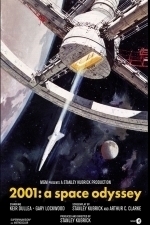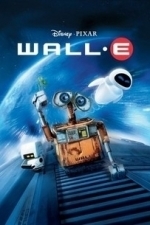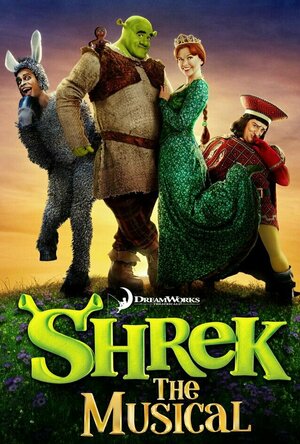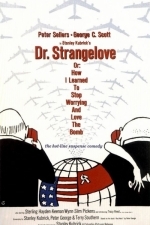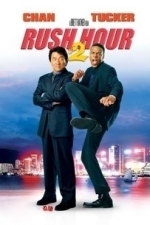Search
Search results
Gaspar Noe recommended 2001: A Space Odyssey (1968) in Movies (curated)
Dean (6927 KP) rated WALL-E (2008) in Movies
Feb 3, 2018
A brilliant film in so many ways!! It is so simple with barely any dialogue, but it doesn't need it you can tell what is going on by the actions and expressions can say more than a thousands words with a film like this. It's cute, funny and smart and carries a message about the environment. Technically the level of detail in the animation is amazing and set new standards for all animations. There are slight influences from Short circuit in the design of Wall-e and 2001: A Space Odyssey as well later in the film. Do not miss this film!!
David McK (3562 KP) rated The Deeds of the Disturber (Amelia Peabody, #5) in Books
Jan 30, 2019
The fifth <i>Amelia Peabody</i> novel which, in a change of setting, actually takes place in and around London rather than Egypt (even though it still deals with Egyptology).
There's also a 2001 film called 'The Mummy Returns': having now read this, I can see more than a few parallels between that movie and this! British museum? Check. Historical(ish) setting? Check. Husband and wife team? Check. Precocious son? Check. Attempted Egyptian ritual/curse? Check (yet again).
OK, so the novel doesn't have the undead wandering around, nor a hot-air balloon, but still enough ...
There's also a 2001 film called 'The Mummy Returns': having now read this, I can see more than a few parallels between that movie and this! British museum? Check. Historical(ish) setting? Check. Husband and wife team? Check. Precocious son? Check. Attempted Egyptian ritual/curse? Check (yet again).
OK, so the novel doesn't have the undead wandering around, nor a hot-air balloon, but still enough ...
Lee KM Pallatina (951 KP) rated Shrek the Musical (2013) in Movies
Mar 23, 2020
Shrek-tastic fun
Found this gem whilst browsing online, I was surprised I hadn't heard of it being a fan of the franchise so was eager to give it a look.
based on the 2001 DreamWorks Animation film Shrek and featuring elements of sequels Shrek 2, Shrek Forever After and William Steig's 1990 book Shrek! This is a brilliant performance by both cast, crew and musicians with wonderful set colours & designs, really catchy musical numbers classic lines & some subtle adult jokes.
The runtime is a little over 2 hours which is more that enough to enjoy.
based on the 2001 DreamWorks Animation film Shrek and featuring elements of sequels Shrek 2, Shrek Forever After and William Steig's 1990 book Shrek! This is a brilliant performance by both cast, crew and musicians with wonderful set colours & designs, really catchy musical numbers classic lines & some subtle adult jokes.
The runtime is a little over 2 hours which is more that enough to enjoy.
Peter Segal recommended Dr. Strangelove (1964) in Movies (curated)
David McK (3562 KP) rated Rush Hour 2 (2001) in Movies
Jan 15, 2021
2001 sequel to the 1998 original, picking up with Carter and Lee in Hong Kong (see the end of 'Rush Hour'), effectively flipping the script from the first film on its head - now it's Carter who is the fish out of water.
However, when the American embassy is bombed and the trail leads to the triad its not long before they are both back on the job, ending up (in this case) in Las Vegas and a link to Chief Inspector Lee's past.
Not as funny as the first film, with Tucker seeming to dial the 'annoyingness' up to 11!
However, when the American embassy is bombed and the trail leads to the triad its not long before they are both back on the job, ending up (in this case) in Las Vegas and a link to Chief Inspector Lee's past.
Not as funny as the first film, with Tucker seeming to dial the 'annoyingness' up to 11!
John Bradley recommended 2001: A Space Odyssey (1968) in Movies (curated)
BankofMarquis (1832 KP) rated 2001: A Space Odyssey (1968) in Movies
Mar 4, 2018
Groundbreaking Special Effects (1 more)
Music
Truly...a masterpiece
Over the years, many, many words have been written and said about the 1968 Stanley Kubrick opus, 2001: A SPACE ODYSSEY, but after re-watching it, there is only 1 word I would write about it...
MASTERPIECE
I have a long history with this film. My father took me to it as a 7 year old. I was intrigued by the Sci-Fi special effects, but mostly liked the monkeys at the beginning. I then saw it again as a college student in the early 1980's and was "really into" (for obvious reasons) the psychedelic special effects at the end. Later...in the early 1990's, during my Arthur C. Clark phase, I read the book and then re-watched the film and my understanding of what was happening on the screen gelled and, consequently, my fascination and respect for the themes and scope of 2001 opened up new doors of understanding. I think I have seen it another 4 or 5 times since then and have appreciated it in different ways each time.
For this viewing, I walked away with a sense of awe of the sheer craftsmanship and audacity that Kubrick put up on the screen. The scope of the project in 1968 was (I'm sure) daunting with a subject matter that was just outside of normal vision, so for Kubrick to get a studio to o'k this film is mind-boggling to me.
But...how does it stack up as a film? Very well, indeed.
Told in 4 parts, 2001: A SPACE ODYSSEY tells the tale of mankind's evolution from ape-man to space explorers and the mysterious, monolithic aliens who help mankind advance along this line.
In the hands of the great Stanley Kubrick, 2001 dazzles with pure visionary visuals, exploding heretofore unseen images on the screen. Showing us what could be possible in outer space visuals (not just paper plates hung on a wire against a star background). The film is full of Kubrick hallmarks - meticulously staged and choreographed scenes, stark colors - mostly one color with a dab of another color across the screen, and long scenes where not much dialogue takes place, but what is said (or not said) in the pauses speaks volume. Some would call this type of film making boring (and I have accused other filmmakers who have attempted this as boring and pretentious), but in the hands of Kubrick, this film is mesmerizing and continuously fascinating.
The first 20 minutes of the film - the DAWN OF MAN portion - and the last 20 minutes - the JUPITER AND BEYOND THE INFINITE portion - are both dialogue-free. Kubrick let's the action and visuals speak for themselves. In between are THE MOON portion, which really serves as the audience introduction into the style and substance of the film, the wonderfully, Oscar winning special effects set upon a backdrop of classical music (who can hear Also sprach Zarathustra and not think of 2001)?
It is during the 3rd - and most famous - portion of this film that a viewer will either engage or disengage with this film. This is the famous HAL 9000 portion of the film where 2 astronauts end up battling with a increasingly unstable artificial intelligence on a journey to Jupiter. It is here where Kubrick, I feel, is at his best. The long, uncomfortable silences and the glances between the two astronauts (played wonderfully by the oft-praised Keir Dullea and the underrated Gary Lockwood) leads to a sense of dread that is very reminiscent of Alfred Hitchcock at his finest.
I will admit that this film is not for everyone - and more than 1 of you reading this will attempt to watch 2001:A SPACE ODYSSEY and fall asleep during the middle of it - but for those of you that can plug into what Kubrick was achieving here will be rewarded with a very rich, very fascinating and very GOOD film that will garner conversation and criticism for many, many years to come.
Truly...a masterpiece.
Letter Grade: A+
10 (out of 10) stars and you can take that to the Bank(ofMarquis)
MASTERPIECE
I have a long history with this film. My father took me to it as a 7 year old. I was intrigued by the Sci-Fi special effects, but mostly liked the monkeys at the beginning. I then saw it again as a college student in the early 1980's and was "really into" (for obvious reasons) the psychedelic special effects at the end. Later...in the early 1990's, during my Arthur C. Clark phase, I read the book and then re-watched the film and my understanding of what was happening on the screen gelled and, consequently, my fascination and respect for the themes and scope of 2001 opened up new doors of understanding. I think I have seen it another 4 or 5 times since then and have appreciated it in different ways each time.
For this viewing, I walked away with a sense of awe of the sheer craftsmanship and audacity that Kubrick put up on the screen. The scope of the project in 1968 was (I'm sure) daunting with a subject matter that was just outside of normal vision, so for Kubrick to get a studio to o'k this film is mind-boggling to me.
But...how does it stack up as a film? Very well, indeed.
Told in 4 parts, 2001: A SPACE ODYSSEY tells the tale of mankind's evolution from ape-man to space explorers and the mysterious, monolithic aliens who help mankind advance along this line.
In the hands of the great Stanley Kubrick, 2001 dazzles with pure visionary visuals, exploding heretofore unseen images on the screen. Showing us what could be possible in outer space visuals (not just paper plates hung on a wire against a star background). The film is full of Kubrick hallmarks - meticulously staged and choreographed scenes, stark colors - mostly one color with a dab of another color across the screen, and long scenes where not much dialogue takes place, but what is said (or not said) in the pauses speaks volume. Some would call this type of film making boring (and I have accused other filmmakers who have attempted this as boring and pretentious), but in the hands of Kubrick, this film is mesmerizing and continuously fascinating.
The first 20 minutes of the film - the DAWN OF MAN portion - and the last 20 minutes - the JUPITER AND BEYOND THE INFINITE portion - are both dialogue-free. Kubrick let's the action and visuals speak for themselves. In between are THE MOON portion, which really serves as the audience introduction into the style and substance of the film, the wonderfully, Oscar winning special effects set upon a backdrop of classical music (who can hear Also sprach Zarathustra and not think of 2001)?
It is during the 3rd - and most famous - portion of this film that a viewer will either engage or disengage with this film. This is the famous HAL 9000 portion of the film where 2 astronauts end up battling with a increasingly unstable artificial intelligence on a journey to Jupiter. It is here where Kubrick, I feel, is at his best. The long, uncomfortable silences and the glances between the two astronauts (played wonderfully by the oft-praised Keir Dullea and the underrated Gary Lockwood) leads to a sense of dread that is very reminiscent of Alfred Hitchcock at his finest.
I will admit that this film is not for everyone - and more than 1 of you reading this will attempt to watch 2001:A SPACE ODYSSEY and fall asleep during the middle of it - but for those of you that can plug into what Kubrick was achieving here will be rewarded with a very rich, very fascinating and very GOOD film that will garner conversation and criticism for many, many years to come.
Truly...a masterpiece.
Letter Grade: A+
10 (out of 10) stars and you can take that to the Bank(ofMarquis)
BankofMarquis (1832 KP) rated 2001: A Space Odyssey (1968) in Movies
Jul 4, 2018
A Masterpiece
Over the years, many, many words have been written and said about the 1968 Stanley Kubrick opus, 2001: A SPACE ODYSSEY, but after re-watching it, there is only 1 word I would write about it...
MASTERPIECE
I have a long history with this film. My father took me to it as a 7 year old. I was intrigued by the Sci-Fi special effects, but mostly liked the monkeys at the beginning. I then saw it again as a college student in the early 1980's and was "really into" (for obvious reasons) the psychedelic special effects at the end. Later...in the early 1990's, during my Arthur C. Clark phase, I read the book and then re-watched the film and my understanding of what was happening on the screen gelled and, consequently, my fascination and respect for the themes and scope of 2001 opened up new doors of understanding. I think I have seen it another 4 or 5 times since then and have appreciated it in different ways each time.
For this viewing, I walked away with a sense of awe of the sheer craftsmanship and audacity that Kubrick put up on the screen. The scope of the project in 1968 was (I'm sure) daunting with a subject matter that was just outside of normal vision, so for Kubrick to get a studio to o'k this film is mind-boggling to me.
But...how does it stack up as a film? Very well, indeed.
Told in 4 parts, 2001: A SPACE ODYSSEY tells the tale of mankind's evolution from ape-man to space explorers and the mysterious, monolithic aliens who help mankind advance along this line.
In the hands of the great Stanley Kubrick, 2001 dazzles with pure visionary visuals, exploding heretofore unseen images on the screen. Showing us what could be possible in outer space visuals (not just paper plates hung on a wire against a star background). The film is full of Kubrick hallmarks - meticulously staged and choreographed scenes, stark colors - mostly one color with a dab of another color across the screen, and long scenes where not much dialogue takes place, but what is said (or not said) in the pauses speaks volume. Some would call this type of film making boring (and I have accused other filmmakers who have attempted this as boring and pretentious), but in the hands of Kubrick, this film is mesmerizing and continuously fascinating.
The first 20 minutes of the film - the DAWN OF MAN portion - and the last 20 minutes - the JUPITER AND BEYOND THE INFINITE portion - are both dialogue-free. Kubrick let's the action and visuals speak for themselves. In between are THE MOON portion, which really serves as the audience introduction into the style and substance of the film, the wonderfully, Oscar winning special effects set upon a backdrop of classical music (who can hear Also sprach Zarathustra and not think of 2001)?
It is during the 3rd - and most famous - portion of this film that a viewer will either engage or disengage with this film. This is the famous HAL 9000 portion of the film where 2 astronauts end up battling with a increasingly unstable artificial intelligence on a journey to Jupiter. It is here where Kubrick, I feel, is at his best. The long, uncomfortable silences and the glances between the two astronauts (played wonderfully by the oft-praised Keir Dullea and the underrated Gary Lockwood) leads to a sense of dread that is very reminiscent of Alfred Hitchcock at his finest.
I will admit that this film is not for everyone - and more than 1 of you reading this will attempt to watch 2001:A SPACE ODYSSEY and fall asleep during the middle of it - but for those of you that can plug into what Kubrick was achieving here will be rewarded with a very rich, very fascinating and very GOOD film that will garner conversation and criticism for many, many years to come.
Truly...a masterpiece.
Letter Grade: A+
10 (out of 10) stars and you can take that to the Bank(ofMarquis)
MASTERPIECE
I have a long history with this film. My father took me to it as a 7 year old. I was intrigued by the Sci-Fi special effects, but mostly liked the monkeys at the beginning. I then saw it again as a college student in the early 1980's and was "really into" (for obvious reasons) the psychedelic special effects at the end. Later...in the early 1990's, during my Arthur C. Clark phase, I read the book and then re-watched the film and my understanding of what was happening on the screen gelled and, consequently, my fascination and respect for the themes and scope of 2001 opened up new doors of understanding. I think I have seen it another 4 or 5 times since then and have appreciated it in different ways each time.
For this viewing, I walked away with a sense of awe of the sheer craftsmanship and audacity that Kubrick put up on the screen. The scope of the project in 1968 was (I'm sure) daunting with a subject matter that was just outside of normal vision, so for Kubrick to get a studio to o'k this film is mind-boggling to me.
But...how does it stack up as a film? Very well, indeed.
Told in 4 parts, 2001: A SPACE ODYSSEY tells the tale of mankind's evolution from ape-man to space explorers and the mysterious, monolithic aliens who help mankind advance along this line.
In the hands of the great Stanley Kubrick, 2001 dazzles with pure visionary visuals, exploding heretofore unseen images on the screen. Showing us what could be possible in outer space visuals (not just paper plates hung on a wire against a star background). The film is full of Kubrick hallmarks - meticulously staged and choreographed scenes, stark colors - mostly one color with a dab of another color across the screen, and long scenes where not much dialogue takes place, but what is said (or not said) in the pauses speaks volume. Some would call this type of film making boring (and I have accused other filmmakers who have attempted this as boring and pretentious), but in the hands of Kubrick, this film is mesmerizing and continuously fascinating.
The first 20 minutes of the film - the DAWN OF MAN portion - and the last 20 minutes - the JUPITER AND BEYOND THE INFINITE portion - are both dialogue-free. Kubrick let's the action and visuals speak for themselves. In between are THE MOON portion, which really serves as the audience introduction into the style and substance of the film, the wonderfully, Oscar winning special effects set upon a backdrop of classical music (who can hear Also sprach Zarathustra and not think of 2001)?
It is during the 3rd - and most famous - portion of this film that a viewer will either engage or disengage with this film. This is the famous HAL 9000 portion of the film where 2 astronauts end up battling with a increasingly unstable artificial intelligence on a journey to Jupiter. It is here where Kubrick, I feel, is at his best. The long, uncomfortable silences and the glances between the two astronauts (played wonderfully by the oft-praised Keir Dullea and the underrated Gary Lockwood) leads to a sense of dread that is very reminiscent of Alfred Hitchcock at his finest.
I will admit that this film is not for everyone - and more than 1 of you reading this will attempt to watch 2001:A SPACE ODYSSEY and fall asleep during the middle of it - but for those of you that can plug into what Kubrick was achieving here will be rewarded with a very rich, very fascinating and very GOOD film that will garner conversation and criticism for many, many years to come.
Truly...a masterpiece.
Letter Grade: A+
10 (out of 10) stars and you can take that to the Bank(ofMarquis)
